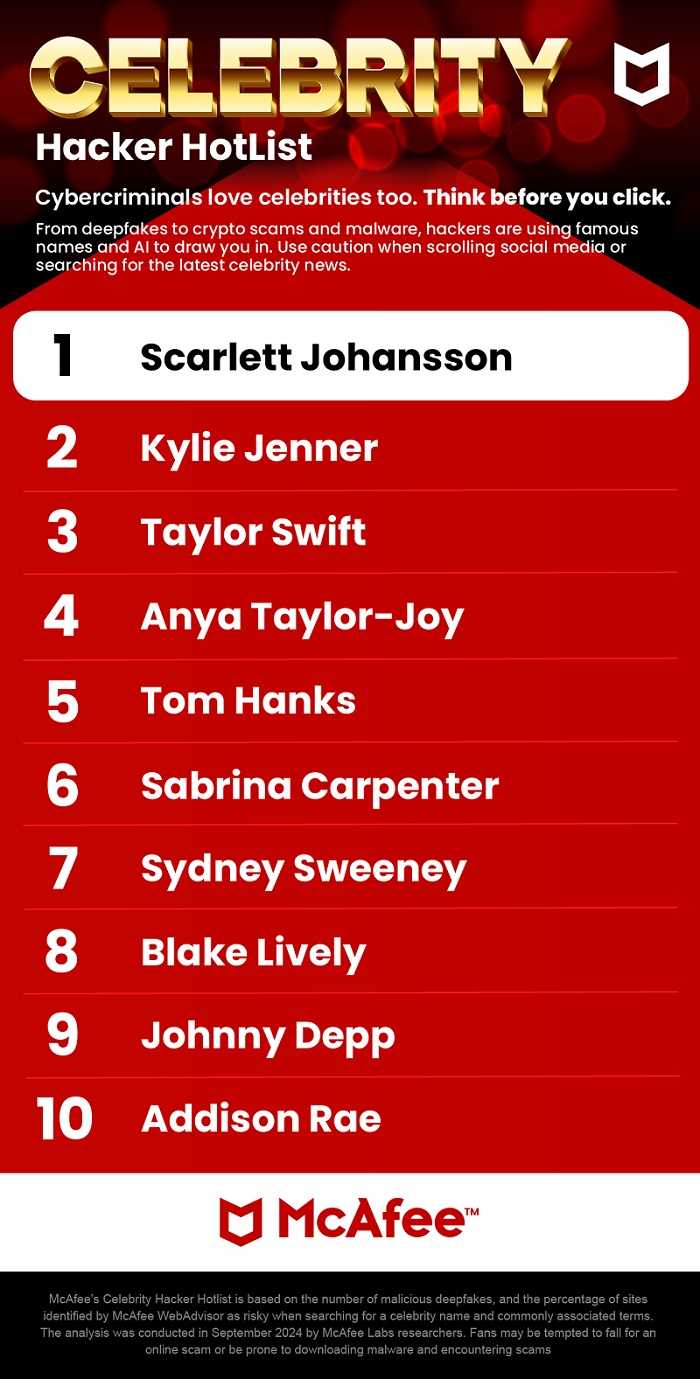McAfee Lists Top 10 Celebs Who Try to Steal Your Money
February 25, 2025
Celebrities being exploited is nothing new. Years ago, Robert Downey, Jr. took to Instagram and Facebook alerting everyone that he was being impersonated, and that the fraudster was asking people to donate to a fake charity. Celebrity chef Alton Brown once posted on social media that someone was posing as his manager asking to connect. And many other celebs complain that their likenesses, names, or even voices have been used or are being used to dupe us all.
 Recently the cybersecurity company McAfee put together the most recent list of the top 10 celebrities used in deepfake scams or who have had their likenesses used in phony ads or scams.
Recently the cybersecurity company McAfee put together the most recent list of the top 10 celebrities used in deepfake scams or who have had their likenesses used in phony ads or scams.
You likely heard how Scarlett Johanssen was not happy about her voice allegedly being used as the model for OpenAI’s GPT-4o. Her likeness has been used in many unauthorized endorsements and ads, and she’s taken to the courts to stop it. She tops the list again this year.
Taylor Swift is also popular for unauthorized endorsements. She’s also been a victim of ticket scammers and fraudulent product giveaways. Taylor ranks third on the list.
Tom Hanks took to social media to warn that his likeness was used to promote “miracle cures” and “wonder drugs” without consent and actors Sydney Sweeny’s and Johnny Depp’s likenesses were used to promote cryptocurrency schemes among other things.
Artificial intelligence makes it easier than ever to create scams and false ads and schemes using anyone’s image or voice. Thankfully, there are ways you can avoid being duped by deepfake scams.
- Verify the sources using independent methods to confirm legitimacy before clicking any links or attachments or giving up any personal information.
- Watch for little inconsistencies and subtle blips in videos and listen for oddities in voices. Deepfakes often have awkward lighting, show mismatched facial expressions, and/or audio mishaps.
- Always have updated anti-virus software installed and updated on your devices. Good antivirus programs often include helpful features such as those that detect malicious websites and suspicious downloads. These will alert you to potential issues before you take any action.
Other celebs in the top 10 list included singer Sabrina Carpenter, actor Blake Lively, and reality TV personality Kylie Jenner. But you can be sure they aren’t the only ones.